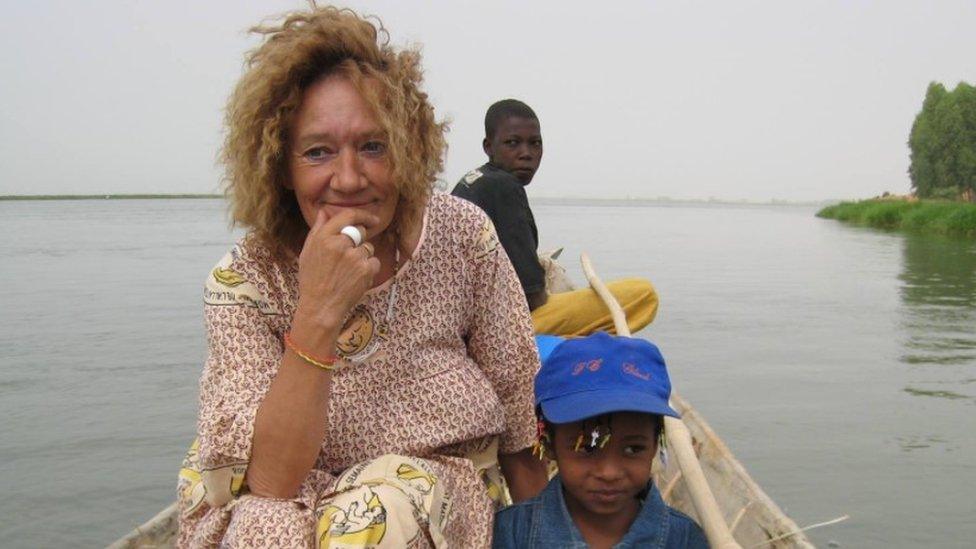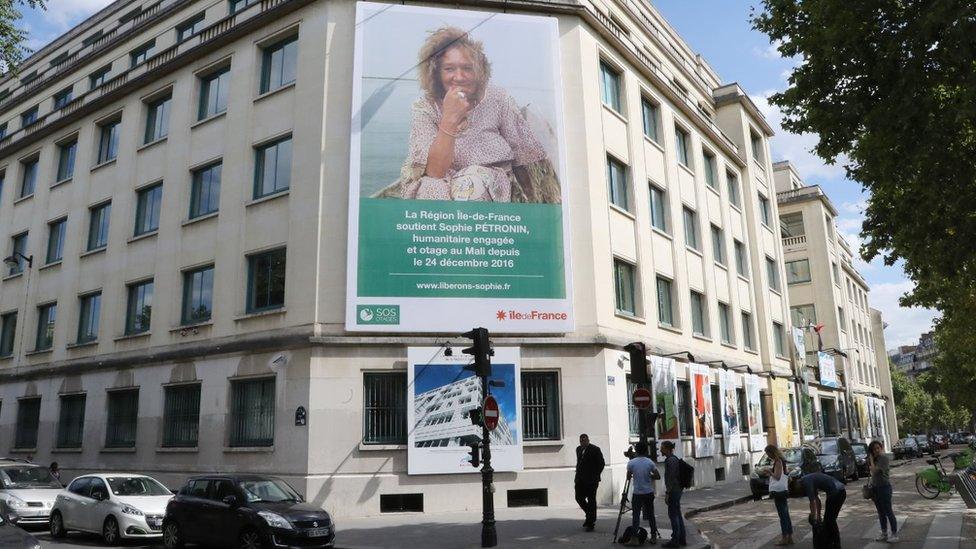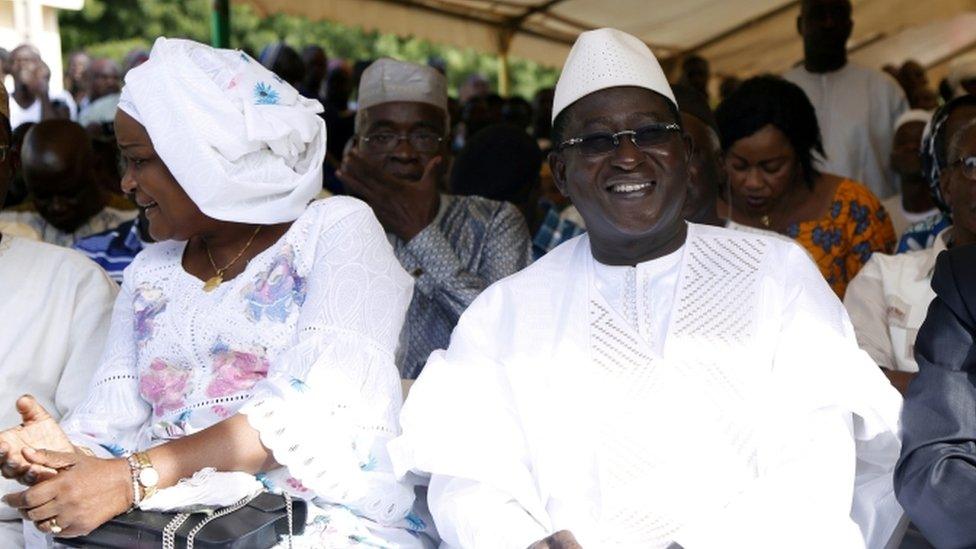Sophie Pétronin: Hopes rise for release of French hostage in Mali
- Published

Sophie Pétronin's family and campaigners have struggled to keep her kidnapping in the public eye
Sophie Pétronin, 75, was abducted in Mali in December 2016 and after almost four years in detention is known as the last French hostage in the world.
Now, there are reports of her imminent release, alongside a veteran Malian politician, as part of a prisoner swap for more than 100 jihadists.
Charity worker Ms Pétronin had already evaded abduction once in disguise.
Meanwhile, ex-opposition leader and former presidential candidate Soumaïla Cissé, 70, was kidnapped in March.
Mali militant group JNIM, which is affiliated to al-Qaeda, is believed to be behind their abductions.
What do we know?
Authorities have been working on their release for months and are reportedly wary of any last-minute hitches. In August, Malian president Ibrahim Boubacar Keïta was overthrown by a military junta and little is known of what happened to the talks after the coup.
"It's too soon to celebrate," Ms Pétronin's son Sébastien Chadaud warned. "We've already lived through moments like this for four years."
Mr Chadaud was on his way to the Malian capital, Bamako, a relative said on Tuesday. "It's really good news," Lionel Granouillac told RTL radio.
Malian reports say about 100 jihadists detained by the military in recent operations were freed in recent days as part of a negotiated prisoner swap.
They later appeared in the northern Mali town of Tessalit, and local reports suggested both Sophie Pétronin and Soumaïla Cissé had been held in that area. Militant group JNIM claimed 206 of its prisoners had been released, Mali news website Nouvel Horizon reports.
Who is Sophie Pétronin?
Known as France's last hostage held by jihadist militants, Sophie Pétronin's cause has been almost forgotten, despite her family's attempts to campaign for her release.
Abducted on Christmas Eve 2016 in the northern city of Gao, she was well known locally for her work helping orphans and other children suffering from malnutrition.
She had been running Swiss charity Association Aid to Gao since 2004 and was an expert in guinea-worm disease, which spread through contaminated water in northern Mali.
When Tuareg rebels backed by Islamists seized Gao as unrest spread in Mali in 2012, seven Algerian diplomats were abducted and the Algerian consul gave her protection until the building came under attack. She fled through a back door and was spirited out of Mali into Algeria wearing long robes.
"We crossed the desert in just one night, when normally it takes two days," she told Le Dauphiné Libéré newspaper in May 2012. "I checked the speedometer, we were going at 130km/h (80mph).

Sophie Pétronin's son has cautioned it is too soon to celebrate until her release is confirmed
She had escaped Mali in disguise but soon returned, and was abducted in a daylight raid claimed by militant group JNIM.
She has appeared in two hostage videos and at one point her son went to a local mediator who said the kidnappers were prepared to accept a ransom for her release. In one video, in June 2018, she appealed for help from President Emmanuel Macron, looking tired and gaunt. She was suffering from cancer and malaria at the time of her abduction.
Who is Soumaïla Cissé?
Mr Cissé, who was kidnapped while campaigning for legislative elections, is a former government minister and a prominent opposition leader.

Soumaïla Cissé (R) was abducted in late March
He was the main challenger to Ibrahim Boubacar Keïta in the 2013 and 2018 presidential elections - losing both times. Following the result of the 2018 vote he complained of electoral fraud.
President Keïta was overthrown in August, in part because of a perceived failure to tackle the jihadist militants in the north of the country, and Mr Cissé's continued captivity was seen as a symptom of that.
What's behind Mali's Islamist insurgency?
A separatist rebellion in the north of the country that began in 2011 created the conditions for militant jihadists to take control of parts of the region.
In 2013, a French-led force helped seize back territory, but a network of jihadist groups remained active and they were able to carry out attacks and kidnappings.
The Malian government has not been able to regain full control of the north.
France continues to support forces in Mali and in other parts of the Sahel region in their fight against the militants.